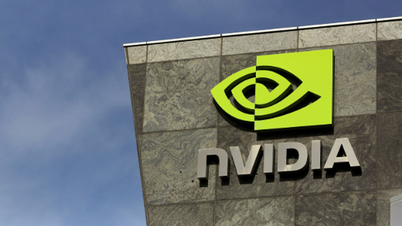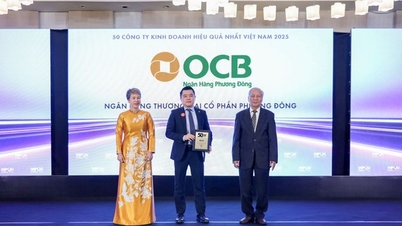The tech world is once again shaken by a bold move from OpenAI, the "giant" pioneer in the field of artificial intelligence (AI). According to the latest reports from The Information, OpenAI is quietly implementing a "huge" discount policy for the enterprise version of the popular chatbot ChatGPT.
This move not only heats up the already fierce AI race but also directly "collides" interests with Microsoft - OpenAI's most important strategic investor and partner, raising big questions about the future of both and the entire AI industry.
According to a spokesperson for OpenAI and two senior executives at major corporations, OpenAI's discount policy is not a simple clearance sale.
Instead, it's designed as a calculated "conditional incentive package": Businesses will get a 10% to 20% discount for agreeing to sign a multi-year service contract and, more importantly, committing to spend more on other products and services in OpenAI's ecosystem.
This “cross-sell” portfolio includes a powerful application programming interface (API), the Deep Research agent (launched in February), and the Codex programming support agent (previewed last month). This is clearly a “kill two birds with one stone” strategy: retaining long-term customers, driving sales of new products, and increasing the company’s dependence on the OpenAI platform.
With over 3 million paid enterprise subscribers as of February this year, including ChatGPT Enterprise, Team, and Edu, this move is expected to help OpenAI quickly expand its market share.

In a move that shook the artificial intelligence (AI) market, OpenAI, the pioneer giant with ChatGPT, suddenly launched a deep discount policy for business packages (Photo: Getty).
Microsoft is restless: From partner to price competitor?
OpenAI's decision to "break the price barrier" immediately created unpleasant ripples, especially within Microsoft.
The software giant, after pouring about $14 billion into OpenAI, now faces the irony of its strategic partner's "pet" product being sold at a more competitive price, even lower than similar AI solutions that Microsoft is trying to market, typically Copilot. This not only makes it difficult for Microsoft's sales team but also complicates the corporation's pricing strategy.
Microsoft's official response, as usual, has been " diplomatic ." A spokesperson asserted: "The company has always offered competitive pricing, and it is inaccurate to suggest we have never matched or exceeded OpenAI's discount."
Another source who spoke to Seeking Alpha also stressed that Microsoft has always pursued a "competitive approach" and that making a general statement that Microsoft is at a price disadvantage is "inaccurate and misleading."
However, these statements are unlikely to completely hide the discontent. The strategic partnership is at risk of turning into a direct price confrontation in the same market segment, which is something no investor wants.
In fact, this price cut is just the latest straw in an already rocky relationship between OpenAI and Microsoft. Despite the huge investment, underlying tensions have long simmered.
The Wall Street Journal reported (June 16) that OpenAI was considering filing anti-competitive charges against Microsoft. Just days later, The Financial Times reported that Microsoft was ready to end negotiations with OpenAI if it could not reach an agreement on core issues. OpenAI’s acquisition of startup Windsurf is also said to be one of the reasons for the increased tensions.
Clearly, mistrust and strategic differences are becoming increasingly evident.
"Lowering prices" to survive: OpenAI's dilemma amid crisis and competitors
Behind the “cheap shock” lies a grim financial picture for OpenAI. The company is expected to lose around $5 billion in 2024. The hope of achieving positive cash flow by 2029, according to Bloomberg News, now seems even more remote with the new pricing policy. Developing and running AI models requires huge resources, and the race is burning through OpenAI’s cash at a breakneck pace.
Yet OpenAI still targets $15 billion in enterprise revenue by 2030, a huge number compared to the $100 million in ChatGPT Enterprise revenue announced earlier this year. The pressure to grow at all costs and expand market share to achieve this goal is immense.
OpenAI isn’t just facing internal and financial problems. Competitors like Meta and Google are also facing increasing pressure. Meta, with a $15 billion investment in Scale AI and efforts to poach talent from within OpenAI itself (though CEO Sam Altman claims “none of our best people have accepted”), is showing its determination to stay in the game.
As previously noted, the AI race seems to be turning into a “bully game” where the big guys try to outdo each other at all costs, sometimes ignoring the need to focus on improving product quality.
The big question is whether OpenAI's decision to cut the price is a wise strategy to "skim" the market, or a sign of desperation when the product has not really met expectations at a high price?
Hedge fund manager Doug Kass once said that products only drop in price when "customers don't see value at a higher price." He also questioned the business viability of these "tech giants," saying the core problem lies in "output quality rather than price."
If ChatGPT and other AI services don’t deliver truly disruptive value that justifies the cost, price cuts may be a temporary fix. They could spark a price war, a “race to the bottom” as everyone burns through R&D.
OpenAI’s “shockingly cheap” move is a risky gamble that will not only shape OpenAI’s future, but could redraw the competitive landscape of the entire AI industry in the years to come. We’ll see if the bold move pays off, or if it’s just a setback in an increasingly bitter battle.
Source: https://dantri.com.vn/kinh-doanh/openai-ha-gia-chatgpt-canh-bac-sinh-ton-giua-bao-ai-20250624001400392.htm


![[Photo] Joy on the new Phong Chau bridge](https://vphoto.vietnam.vn/thumb/1200x675/vietnam/resource/IMAGE/2025/9/28/b00322b29c8043fbb8b6844fdd6c78ea)
![[Photo] The 4th meeting of the Inter-Parliamentary Cooperation Committee between the National Assembly of Vietnam and the State Duma of Russia](https://vphoto.vietnam.vn/thumb/1200x675/vietnam/resource/IMAGE/2025/9/28/9f9e84a38675449aa9c08b391e153183)

![[Photo] High-ranking delegation of the Russian State Duma visits President Ho Chi Minh's Mausoleum](https://vphoto.vietnam.vn/thumb/1200x675/vietnam/resource/IMAGE/2025/9/28/c6dfd505d79b460a93752e48882e8f7e)



























































































Comment (0)